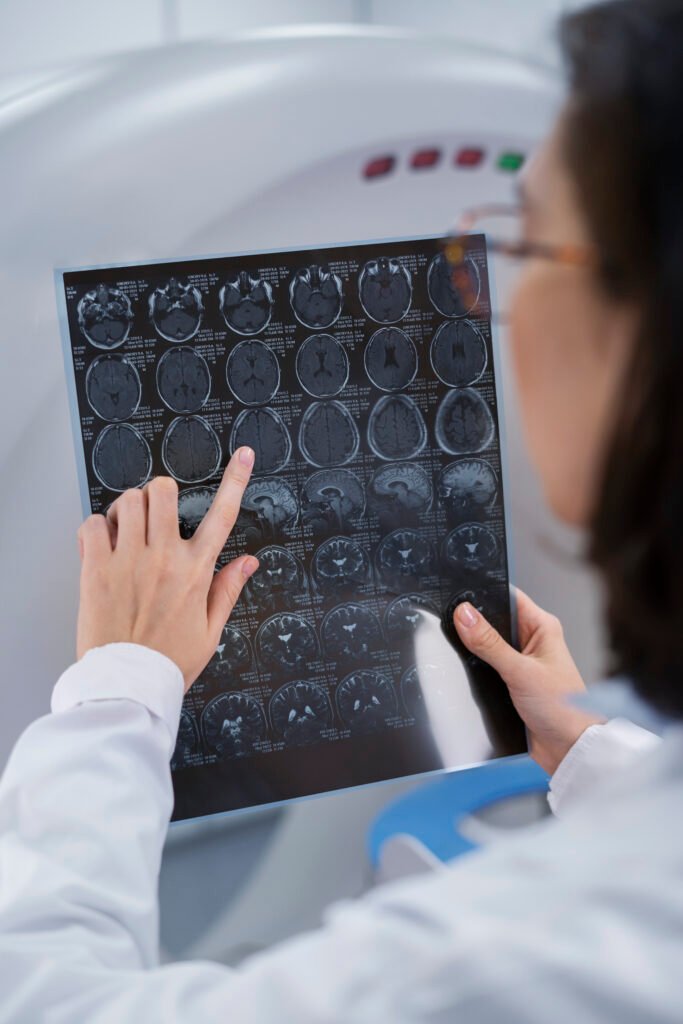Neurosurgeons play a crucial role in the treatment of complex neurological disorders, using their expertise to perform surgical interventions that can significantly improve patient’s quality of life. From brain tumors to spinal conditions, these specialists address a wide range of issues that affect the brain, spine, and nervous system. However, neurosurgeons do not work alone. They are part of a multidisciplinary team that includes neurologists, radiologists, rehabilitation specialists, and other healthcare professionals, ensuring comprehensive care throughout the treatment process.

Common Neurological Conditions Treated by Neurosurgeons
Neurosurgeons are highly trained to diagnose and treat a variety of neurological disorders. Some of the most common conditions they manage include:
Brain Tumors
Brain tumors, whether benign or malignant, are one of the most challenging conditions neurosurgeons address. Surgery is often the primary treatment option, with the goal of removing as much of the tumor as possible while preserving healthy brain tissue. Advanced imaging techniques, such as intraoperative MRI, help guide surgeons during the procedure, allowing for precise tumor resection.
Epilepsy
For patients with epilepsy who do not respond to medication, neurosurgeons may perform procedures such as vagus nerve stimulation (VNS) or lobectomy to reduce the frequency of seizures. These surgical interventions are often life-changing for individuals with severe forms of epilepsy, enabling them to regain control over their daily lives.
Spinal Disorders
Neurosurgeons also treat a range of spinal disorders, including herniated discs, spinal stenosis, and spinal cord tumors. Minimally invasive techniques such as spinal fusion and vertebroplasty allow for effective treatment while reducing recovery times and improving patient outcomes. These procedures help alleviate chronic pain, restore mobility, and improve overall function for patients with degenerative spine conditions.
Cerebrovascular Disorders
Conditions such as aneurysms, arteriovenous malformations (AVMs), and stroke often require neurosurgical intervention to prevent life-threatening complications. Techniques like clipping or coiling of aneurysms and endovascular surgery are used to restore normal blood flow and reduce the risk of further damage.
Traumatic Brain Injury (TBI)
In cases of severe head trauma, neurosurgeons perform craniotomies or decompressive craniectomies to relieve pressure on the brain and prevent further injury. Neurosurgical care is critical in the immediate aftermath of trauma to save lives and preserve brain function.
The Multidisciplinary Approach to Neurosurgical Care
While neurosurgeons are experts in performing surgeries, they collaborate closely with other specialists to provide holistic care. This multidisciplinary approach ensures that every aspect of a patient’s condition is addressed, from diagnosis to recovery.
Collaboration with Neurologists
Neurologists in Penang often work alongside neurosurgeons to diagnose and manage neurological conditions, particularly in cases where medication and non-surgical interventions are involved. For example, in the treatment of epilepsy, a neurologist may first attempt to control seizures with medication, referring the patient to a neurosurgeon only if surgery becomes necessary. This partnership allows for a seamless transition from medical management to surgical intervention when required.
The Role of Radiologists
Radiologists play a critical role in providing the detailed imaging needed for neurosurgical planning. MRI, CT scans, and angiograms help neurosurgeons map out their approach, ensuring that they can navigate around critical brain structures and minimize damage to healthy tissue. In many cases, intraoperative imaging is used during surgery to guide the procedure and confirm successful outcomes in real-time.
Rehabilitation Specialists
Following neurosurgery, rehabilitation is a key component of the recovery process. Physical therapists, occupational therapists, and speech therapists work together to help patients regain function, whether it’s rebuilding motor skills after spinal surgery or improving speech and language abilities following a brain operation. This post-surgical care is vital in maximizing recovery and improving the long-term quality of life for patients.
Conclusion
Neurosurgeons in Penang are essential in the treatment of complex neurological disorders, but they are part of a larger, multidisciplinary team dedicated to providing the best possible care. By working closely with neurologists, radiologists, and rehabilitation specialists, neurosurgeons ensure that patients receive comprehensive and personalized treatment plans tailored to their specific needs.
If you or a loved one is facing a neurological condition, the expert team at Gleneagles Hospital Penang is here to provide advanced surgical care, along with a full spectrum of support services, to help you on the path to recovery.
